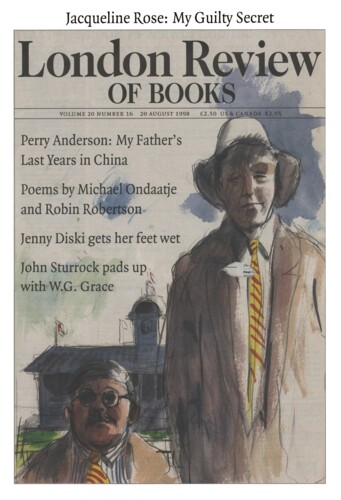Star-Crossed in the Congo: Ronan Bennett
Mark Hudson, 20 August 1998
At independence from Belgium in June 1960, Patrice Lumumba, the Congo’s first prime minister, inherited a territory the size of India with only 12 African university graduates and no African lawyers, senior civil servants or army officers above the rank of sergeant. Although it was still making vast sums for Belgian commercial interests, the country was bankrupt, and almost immediately it began to fall apart. The Army mutinied in a raping and looting free-for-all. Belgian paratroopers responded with indiscriminate brutality, evacuating the white settler population amid scenes of unimaginable chaos. The mineral-rich southern province of Katanga seceded with the backing of Belgian mining companies and white mercenaries. Troops loyal to the Government committed widespread atrocities in an attempt to prevent the secession of neighbouring Kasai. Lumumba called in the United Nations to reunite the country, and when they refused to take more than a peace-keeping role, he invited the Soviet Union to come to his assistance. He was deposed soon afterwards by a young army officer, Joseph Désiré Mobutu, with American, French and Belgian backing. A global conflagration was underway in the heart of Africa. After a botched escape attempt and a great deal of shillyshallying, Lumumba was put on a plane to Katanga in January 1961, where he was murdered. Three years of civil war followed, after which Mobutu set up his kleptocratic dictatorship (and remained in power until he was deposed last year by the now embattled old Lumumbist, Laurent Kabila).

